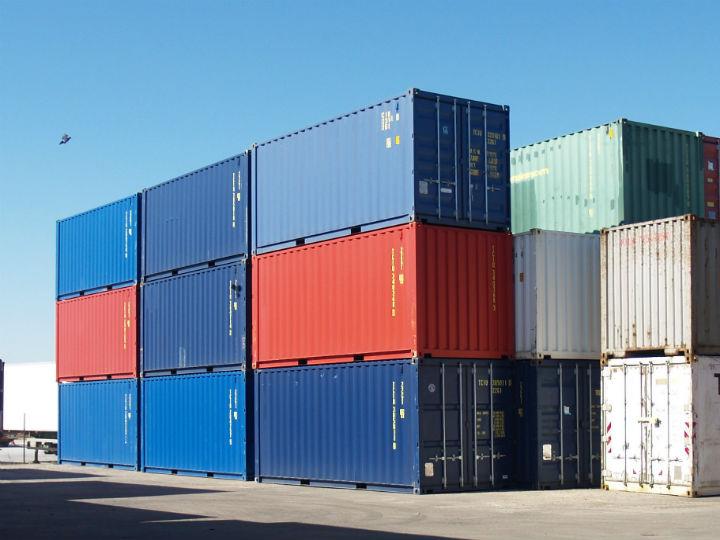by Sam Morgan
The coronavirus is likely to accelerate transport’s shift towards digitalization and help the sector decrease both its environmental footprint and its costs. But in order for digital solutions to work, trust must first be built, top industry voices have warned.
Digital’s potential to streamline transport, reduce its greenhouse gas emissions and create value across the board is well-established on paper but it is only in recent years that companies have started to embrace it fully.
As an example of data’s potential, in the early weeks of the virus outbreak in Europe, traffic jams at closed borders threatened to cut supply chains and cripple businesses. Freight corridors and a ‘green lanes app’ were quickly rolled out to keep important goods moving.
Novelties like better route-planning, on-demand cross-platform ticketing, and real-time passenger capacity monitoring are all made possible by tapping into data resources. From freight to passenger services, the scope to improve is huge.
At an International Road Transport Union (IRU) event on Tuesday (20 October), European Commissioner for Transport Adina Valean said the sector is “in the midst of a transformation” and noted a “seismic shift in how Europe moves goods and people”.
“We realize that sustainability and digitalization will increase the resilience of the sector. We have a powerful weapon: data. Interconnectivity increases efficiencies and decreases costs,” Valean said, adding that a forthcoming transport strategy will feature data usage heavily.
That will tie in with the Commission’s data strategy, which will put forward a data governance framework aiming to set the ground rules for safe value-building data spaces.
Senior EU official Daniel Mes, a member of Green Deal chief Frans Timmermans’ team, said that digitalization has helped Europe manage the ongoing pandemic and that further steps will be needed in order to prepare for future crises.
“Technology is not the issue, it’s something we can overcome. Trust is what we need to work on. Our ambition is clear: safe environments where people can share data to achieve these things, we’re looking for an alternative to our current world, where big tech dominates.”
The issue of trust was a common theme at the IRU event. Industry speakers warned how tough experiences with the GDPR regulation and the burden imposed upon small- and medium-sized companies (SMEs), should inform any new data rules.
“The Commission will have a close look at this,” Mes insisted, explaining that “data unions and data cooperatives” are two solutions that could streamline data sharing.
Claire Martin, executive director of public transport operator Keolis, explained how trust is relatively easy to build in her part of the sector, as data exchange is governed by a “strict contractual framework”.
“Our strategy is not to sell our data or price it. Our strategy is to make the best use of the data we are generating or have access to,” Martin said, adding that digitalization will become even more pertinent due to the pandemic.
The Keolis executive explained how passenger faith in public transport and its capacity to move people safely and hygienically can be shored up by giving them access to real-time data on how many people are on trains, buses, trams, and metros.
Luis Gomez, the head of US multinational XPO logistics’ European operations, explained how using data and sharing it between clients, consumers and drivers is already helping to make freight deliveries more efficient, green, and cheaper.
But he also warned that potential is going untapped: “There is not yet this community pooling that can benefit all of us. The US is more advanced in that regard. I don’t see a sharing of data between companies in Europe, where we can all benefit.”
This is partly because firms are wary of what their competitors might do with their data if it is just handed over without the right checks and balances. Companies like TomTom, a GPS navigation specialist, have thrived by utilizing available data pools.
That is where the EU’s attempts to build a data framework come in. The industry wants the exchange of information to be made easier but for it only to happen on a voluntary rather than a mandatory basis.
“Technological development needs to be promoted but competition preserved. Lack of updated rules in the sector has resulted in fragmentation, insecurity, etc. That has impacted newcomers and their attempts to scale up,” warned MEP Alex Aguis Saliba (S&D Group).
Whether the EU’s efforts will create the much sought after safe spaces and interoperability factors remains to be seen.
For the transport sector, it is clear that better use of data can generate huge financial and even social gains but the right rules and improved awareness among firms will be a prerequisite for those benefits to start moving.
*first published in: www.euractiv.com




 By: N. Peter Kramer
By: N. Peter Kramer
